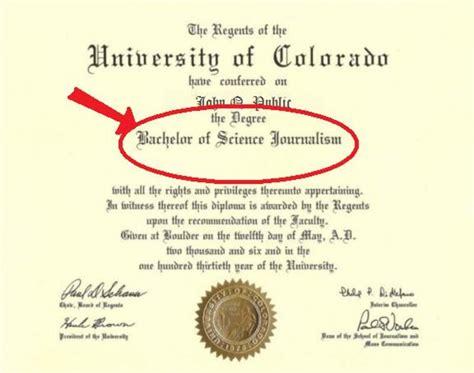Bachelor's Degree Or Equivalent: Explained In English

Obtaining a Bachelor’s degree or its equivalent is a significant milestone in one’s educational journey. It is a qualification that holds immense value and opens up a world of opportunities for individuals. In this article, we will delve into the details of what a Bachelor’s degree entails, its benefits, and how it can shape your future.
1. What is a Bachelor’s Degree?
A Bachelor’s degree is an undergraduate academic degree awarded by universities and colleges upon completion of a specific course of study. It typically takes around four years to complete, although the duration may vary depending on the country and educational institution.
1.1 Types of Bachelor’s Degrees
There are various types of Bachelor’s degrees that cater to different fields of study. Some common examples include:
- Bachelor of Arts (B.A.)
- Bachelor of Science (B.S.)
- Bachelor of Commerce (B.Com.)
- Bachelor of Engineering (B.E.)
- Bachelor of Fine Arts (B.F.A.)
2. Why Pursue a Bachelor’s Degree?
Obtaining a Bachelor’s degree offers several advantages:
- Enhanced Career Opportunities: A Bachelor’s degree is often a minimum requirement for many professional careers. It equips individuals with the necessary knowledge and skills to excel in their chosen field.
- Higher Earning Potential: Studies have shown that individuals with a Bachelor’s degree tend to earn higher salaries compared to those with only a high school diploma.
- Personal Growth: Pursuing a Bachelor’s degree allows individuals to expand their horizons, gain a deeper understanding of their subject of interest, and develop critical thinking and problem-solving skills.
- Networking Opportunities: University life provides ample opportunities to network with peers, professors, and industry professionals, which can be beneficial for future career prospects.
3. How to Choose a Bachelor’s Degree Program?
Choosing the right Bachelor’s degree program is crucial for a successful academic journey. Here are some factors to consider:
- Interest and Passion: Select a program that aligns with your interests and passion. This will enhance your motivation and enjoyment throughout your studies.
- Career Goals: Research career paths that are associated with different Bachelor’s degree programs. Consider the job prospects, market demand, and growth opportunities in your desired field.
- Accreditation: Ensure that the educational institution and program you choose are accredited by a recognized accrediting body. This ensures the quality and credibility of your degree.
- Curriculum: Review the curriculum of the program to ensure it covers the necessary subjects and offers a well-rounded education in your chosen field.
4. Application Process for a Bachelor’s Degree Program
The application process for a Bachelor’s degree program typically involves the following steps:
- Research and shortlist potential universities or colleges.
- Check the admission requirements and deadlines of each institution.
- Prepare the necessary documents, such as academic transcripts, letters of recommendation, and a personal statement.
- Submit your application online or by mail, following the instructions provided by the institution.
- Await the admission decision, which may include an interview or entrance examination.
- If accepted, complete the enrollment process and begin your studies!
5. Funding Your Bachelor’s Degree
Financing your Bachelor’s degree can be a concern for many students. Here are some common methods of funding:
- Scholarships and Grants: Research and apply for scholarships and grants offered by universities, government organizations, and private foundations.
- Student Loans: Explore student loan options available from banks and financial institutions. Be sure to understand the terms and repayment obligations before borrowing.
- Part-time Work: Consider working part-time while studying to cover some of the expenses. Many universities also offer work-study programs.
6. Bachelor’s Degree vs. Equivalent Qualifications
In some cases, individuals may pursue alternative qualifications that are considered equivalent to a Bachelor’s degree. These can include:
- Associate’s Degree: An Associate’s degree is a two-year undergraduate program that provides foundational knowledge in a specific field. It can serve as a stepping stone towards a Bachelor’s degree.
- Diploma or Vocational Certificate: Diplomas and vocational certificates focus on practical skills and are often shorter in duration compared to a Bachelor’s degree. They can lead to employment in specific industries.
- International Baccalaureate (IB) Diploma: The IB Diploma is a globally recognized qualification that prepares students for higher education. It is widely accepted by universities worldwide.
Conclusion
A Bachelor’s degree or its equivalent is a valuable asset that can significantly impact your personal and professional growth. It opens doors to a wide range of career opportunities and provides a solid foundation for further education if desired. Consider your interests, career goals, and the available options when choosing a Bachelor’s degree program, and remember to explore funding options to make your educational journey a reality.
Frequently Asked Questions
Q: How long does it take to complete a Bachelor’s degree?
A: The duration of a Bachelor’s degree program is typically four years, but it may vary depending on the country and educational institution.
Q: Can I pursue a Bachelor’s degree online?
A: Yes, many universities offer online Bachelor’s degree programs, providing flexibility for individuals who cannot attend traditional on-campus classes.
Q: What is the difference between a Bachelor of Arts and a Bachelor of Science?
A: A Bachelor of Arts (B.A.) degree typically focuses on humanities and social sciences, while a Bachelor of Science (B.S.) degree emphasizes natural sciences and mathematics.
Q: Are Bachelor’s degrees internationally recognized?
A: Yes, Bachelor’s degrees earned from accredited institutions are generally recognized worldwide and can be used for further studies or employment opportunities globally.
Q: Can I pursue a Master’s degree after obtaining a Bachelor’s degree?
A: Yes, a Bachelor’s degree is a prerequisite for admission into most Master’s degree programs. It provides the foundation for advanced studies in a specific field.
Q: Can I change my Bachelor’s degree program after starting?
A: Depending on the educational institution, it may be possible to change your Bachelor’s degree program during the early stages of your studies. However, it is best to consult with academic advisors and consider the implications before making a decision.
